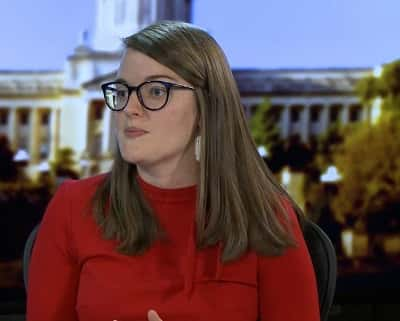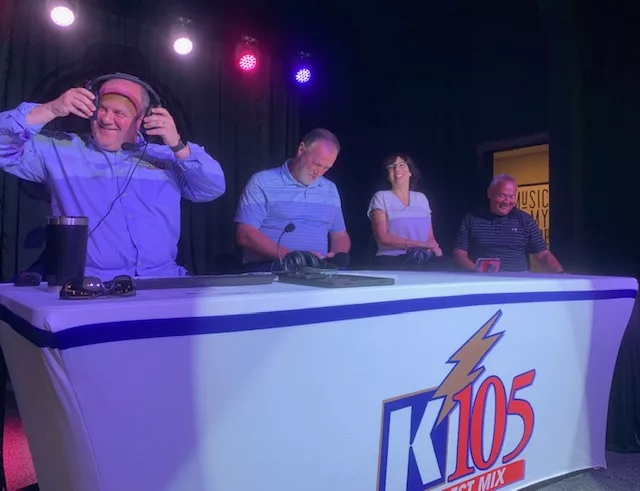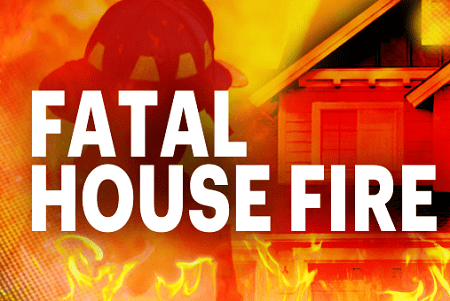
Last week, Gov. Andy Beshear issued a call for the legislature to convene a special session to deal with the COVID-19 pandemic.
We convened on Tuesday, September 7, and spent a whirlwind three days considering legislation, eventually overriding several vetoes issued by the governor before wrapping up in Frankfort that Thursday night.
To be honest, I do not think a single member believes these bills are perfect. In fact, none accomplish what I know all Kentuckians really want – an end to this pandemic and all that it includes. However, I believe we passed several strong, responsible pieces of public policy that reflect our belief that government’s role is to provide resources, rather than mandates. We provided flexibility to schools, businesses, healthcare providers, and individuals while ensuring that our state can take advantage of federal resources.
Since this was the first test of legislation we approved earlier this year to provide a framework for states of emergency, we felt it was important to move as effectively and efficiently as possible. Instead of the traditional minimum of five days necessary for a special session, we used a longstanding rule that allows the House and Senate to pass identical bills through both chambers concurrently, giving each the required readings and committee hearings, and then substituting them for each other for final passage.
Using this rule allows for full transparency and debate while allowing us to shave two days off – which means we had a faster response without sacrificing the quality of our work. Here is a summary of four of the five pieces of legislation we passed last week. I will include an update on the fifth in a future update.
HJR 1: One of our first orders of business was to ratify the most necessary policies our state needs to face this pandemic. We identified these by going through each emergency regulation and cabinet directive and included only what we deemed good policy. We eliminated many because we felt they were either unnecessary or harmful. We will revisit these policies before we convene in session in January, monitoring to see how our state’s needs evolve between now and then.
SB 1 (HB 1): This measure requires local health departments to develop a model program that will allow students and staff to “test and stay” in school when they might otherwise be quarantined or isolated because of an exposure. We also provided districts more flexibility with up to 20 days of remote learning that can be used for individual schools, grades, classes or groups of students—an idea that came from stakeholders.
Remote learning is no substitute for in-person learning, but it is a more appropriate solution than the non-traditional instruction days that are designed as an alternative to short term absences. The measure additionally recognizes that, instead of classroom days, districts can track instructional hours to make up lost time throughout the year. For example, instead of 170 days, they can split up the classroom hours by adding blocks of time to each day.
This bill also eliminated the statewide mask mandate for children in kindergarten through 12th grade and the mask mandate for children two and older in licensed and regulated childcare facilities. We have seen time and again that these decisions are best left to local school boards who know better than anyone what their community needs.
A final provision of the bill provides financial stability to districts by allowing the average daily attendance used to calculate the per pupil education funding to be based on pre-COVID attendance figures. The governor vetoed portions of this bill, but we quickly voted to override them to ensure it becomes law.
SB 2 (HB 2): We also adopted legislation aimed at the state’s healthcare response. With this bill, we provided a mechanism to encourage awareness of vaccines, COVID-19 testing, and the monoclonal antibody treatments that have been used successfully to treat the virus. Additionally, this bill makes both testing and vaccines more available throughout the state and allows paramedics to provide care in hospitals to help with health care provider shortages that have plagued this pandemic from the beginning.
We also included a requirement that the state adopt a plan to allow “essential compassionate care” visitors to those in Kentucky long-term care facilities. Parts of this bill were also vetoed, with legislators voting to override before adjourning the session.
SB 3 (HB 3): This measure directs $69.3 million of the American Rescue Plan Act (ARPA) State Fiscal Recovery Funds to aid critical healthcare needs related to COVID-19. The bill emphasizes that funding should be prioritized for COVID-19 testing, establishing monoclonal antibody treatment centers, and “test and stay” programs at schools.
Schools that implement the “test and stay” program may receive funding for COVID-19 testing supplies costs. The “test and stay” program gives parents the option of letting their child be tested for COVID-19 every 24-hours for 12 days after exposure.
Since its implementation in August, 175 Green County students have been exposed to COVID-19, but only 15 tested positive. In the coming weeks, many school districts plan to implement “test and stay,” including districts in Fayette, Oldham, Kenton, and Campbell counties. The measure includes a safeguard to track where dollars are spent by requiring the state to submit a report of expenditures to the legislature.
Before I close, I want to address the misinformation I am hearing about from constituents. Because the session was so intensely busy, I am still replying to some that have emailed, called, and messaged me. I have read most of my messages, and I am extremely concerned at the outright lies people are seeing on social media and taking as the truth.
Everything from a rumor that we passed a statewide mask mandate to talk that we were going to reward healthcare providers that fired employees that would not get vaccinated. If you see something that concerns you, please reach out to me and give me an opportunity to discuss it with you. I can promise you, you cannot believe everything you read on the internet.
As always, I hope you will feel free to contact me with any questions or issues. I can be reached here at home anytime or through the toll-free message line in Frankfort at 1-800-372-7181. Please feel free to email me at Samara.Heavrin@LRC.KY.GOV. If you would like more information about any of these committees or legislative actions, you can visit the Legislative Research Commission website at legislature.ky.gov.
State Rep. Samara Heavrin, R-Leitchfield








